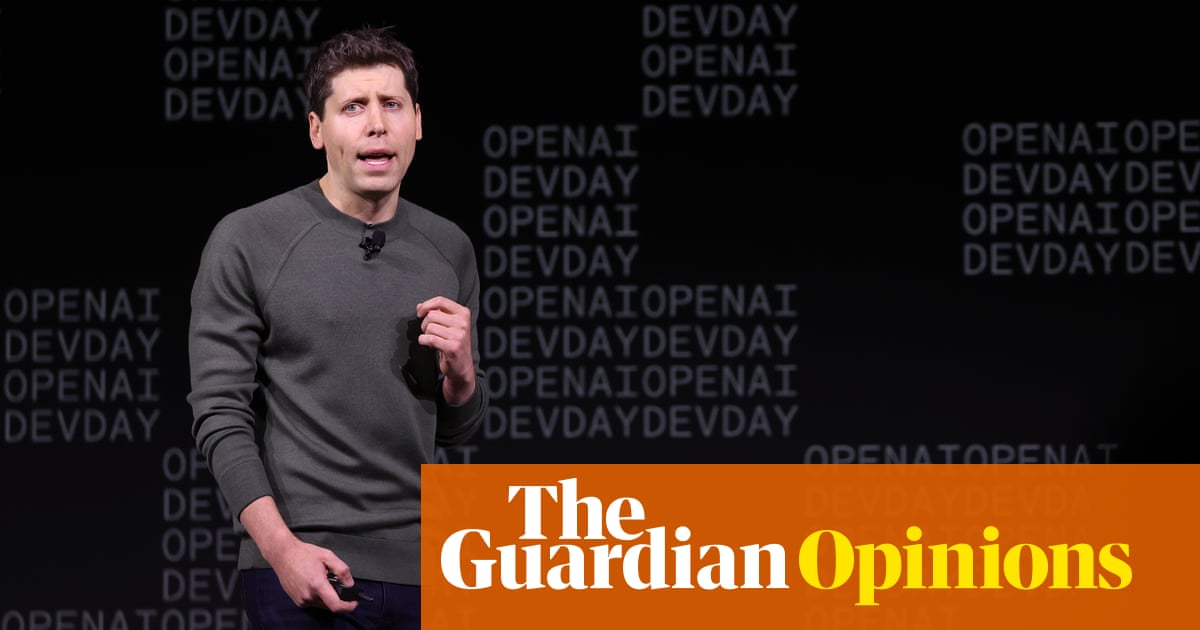A consumer-oriented AI tool named ChatGPT was unveiled by OpenAI in November 2022, enabling users to engage in conversations, receive answers to inquiries, and generate diverse content ranging from lyrics to system code to health guidance. Despite the initial technology’s shortcomings that occasionally led to the generation of inaccurate yet encouraging information, the tool garnered significant interest due to its promising potential.
Over the course of a year, ChatGPT has witnessed a surge in popularity, boasting 100 million weekly users and attracting over 92% of Fortune 500 companies and other industry competitors seeking to integrate or enhance the technology. However, OpenAI, the entity behind ChatGPT, was notably absent from recent news coverage. Instead, the spotlight was on OpenAI in a contentious theoretical debate concerning the implications of developing artificial general intelligence for the betterment of humanity.
To grasp the current discourse and its implications, it is imperative to delve into OpenAI’s inception in December 2015. Initially established as a non-profit organization with the mission of creating safe and beneficial artificial general intelligence for the advancement of humanity, OpenAI later transitioned into a limited liability company due to the capital-intensive nature of AI research and development. This shift aimed to leverage for-profit resources while upholding OpenAI’s core principles, including the establishment of a non-profit board with full control over the for-profit entity and profit capping.
Noteworthy changes in OpenAI’s philosophy emerged during this transition period. The organization recognized the potential risks associated with making its technology open-source, acknowledging the possibility of malicious actors exploiting the tools for misinformation, theft, or bot manipulation. Despite criticisms suggesting a departure from its founding principles towards profit-driven motives, OpenAI’s cautious approach was deemed necessary to prevent misuse in misinformation campaigns or threats to democratic processes.
Sam Altman, the former CEO of OpenAI, openly acknowledged the risks associated with AI systems, emphasizing the need to address potential pitfalls through collaboration with government entities. Despite facing scrutiny, Altman’s proactive stance and engagement with stakeholders reflected a commitment to mitigating risks associated with AI advancements.
Following a substantial increase in valuation and strategic investments from major players like Microsoft and Anthropic, OpenAI experienced a significant shift in leadership dynamics. A statement released by OpenAI’s board hinted at concerns regarding communication transparency, leading to Satya Nadella of Microsoft swiftly recruiting Altman and his senior engineering team.
As the narrative unfolds, Emmett Shear assumes the role of OpenAI’s new CEO, advocating for a more cautious approach to AI development contrary to Silicon Valley’s prevailing optimism. The organization faces internal dissent, with over 700 employees expressing discontent and contemplating departures due to perceived leadership shortcomings. Microsoft’s involvement further complicates the landscape, triggering a talent acquisition frenzy that could reshape the AI industry.
The evolving AI landscape poses challenges in governance and policy, necessitating stronger arguments for either accelerating or decelerating progress towards artificial general intelligence. With Microsoft’s wealth of legal and policy expertise, the AI sector is poised for transformation, potentially intensifying the pursuit of AI goals while complicating oversight and regulation efforts.
In conclusion, the unfolding developments within OpenAI underscore the delicate balance between technological advancement and ethical considerations, highlighting the need for thoughtful deliberation and strategic decision-making in navigating the complexities of AI innovation.






